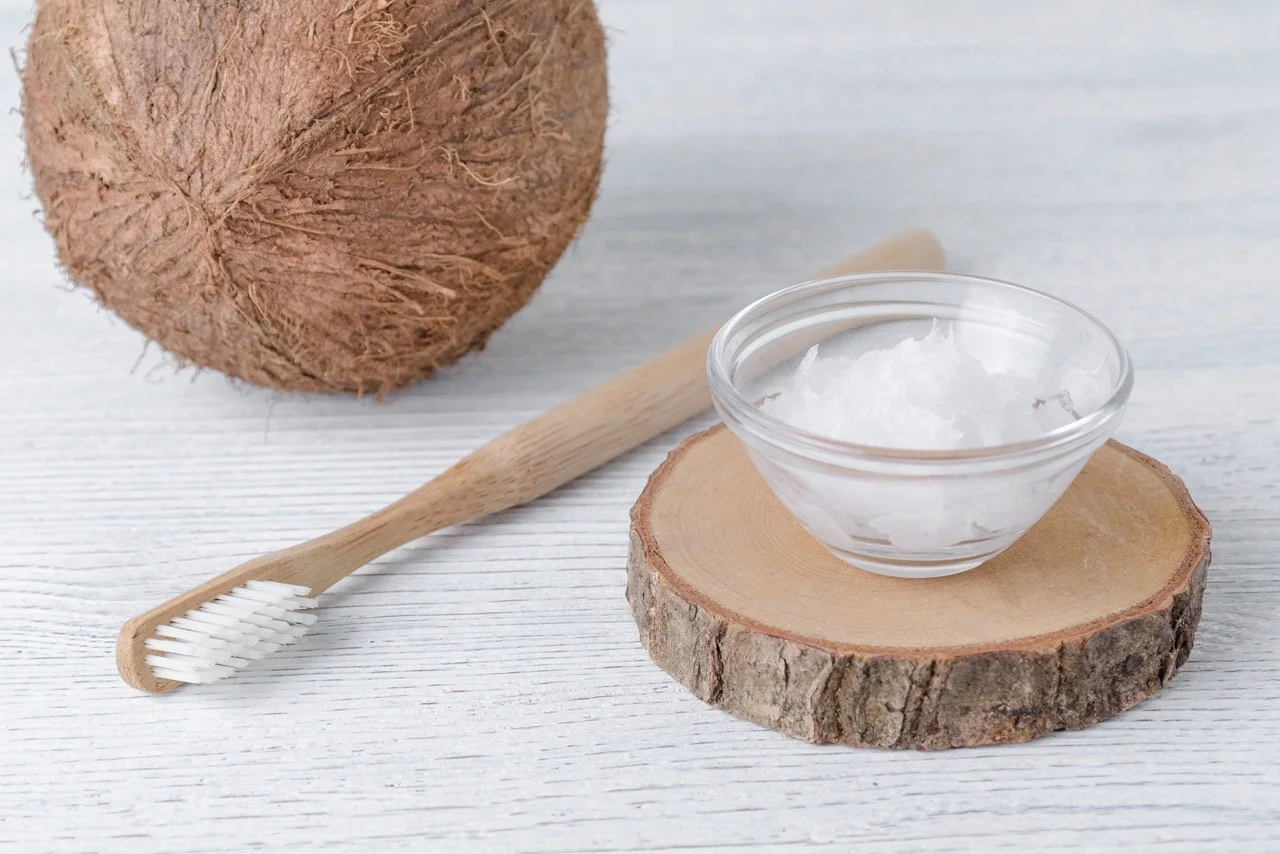The Ancient Ayurvedic Practice of Oil Pulling
Oil pulling, an age-old Ayurvedic practice, has surged in popularity in the past few years as a holistic wellness ritual. I personally LOVE it and do it every single day! This ancient traditional technique involves swishing oil in the mouth for a few minutes, ideally first thing in the morning. Here I want to explain the origins of oil pulling, the technique itself, and the myriad of benefits it bring to oral and overall health.
What is Oil Pulling?
Oil pulling, or "kavala" or "gundusha" in Ayurveda, is a simple oral hygiene practice. It involves swishing a tablespoon of edible oil - commonly coconut or sesame oil - in the mouth for about 10-15 minutes, typically in the morning on an empty stomach. The oil is then spit out (very important, do NOT swallow!) and the mouth is rinsed with warm water. I usually follow by brushing my teeth as I normally would.
Origins of Oil Pulling
The roots of oil pulling trace back to ancient Ayurvedic texts, where it is cited as a method to support oral and systemic health. This traditional Indian medical system views the mouth as a mirror reflecting the overall health of the body. The practice was embraced not only for oral hygiene but also for its potential systemic detoxification benefits.
How to Practice Oil Pulling
Get a tablespoon of edible oil, preferably organic coconut oil for its antimicrobial properties. It also has a pleasant taste which is a bonus.
Swish the oil around the mouth, pulling it through the teeth and along the gums.
Continue for about 10 minutes, ensuring not to swallow the oil. I usually do other things at the same time as part of my morning routine such as washing my face or writing in my journal.
Spit out the oil into a trash can (to avoid clogging pipes) and rinse the mouth thoroughly with warm water.
Follow with regular oral hygiene practices like brushing and flossing.
Benefits of Oil Pulling
Oral Health: Oil pulling reduces harmful bacteria in the mouth, potentially improving oral health, reducing bad breath, and preventing cavities.
Gum Health: The swishing action may help reduce inflammation and promote healthier gums, contributing to overall periodontal wellbeing.
Whiter Teeth: Oil pulling may lead to naturally whiter teeth by removing surface stains and promoting oral hygiene.
Detoxification: In Ayurveda, oil pulling is thought to pull toxins from the body, providing a systemic detoxification effect. While scientific evidence is limited, some studies suggest a reduction in certain bacteria after oil pulling. This is particularly important for people with Small Intestinal Bacterial Overgrowth and for people with low stomach acid as it reduces the amount of bacteria in the mouth that could then be swallowed and travel down to the intestinal tract in cases where the stomach acid is not strong enough to kill them. We don’t want to add bacteria to an already existing overgrowth!
Headache Relief: Some anecdotal evidence suggests that oil pulling might alleviate headaches and migraines, possibly by reducing overall inflammation.
As a complementary practice to regular oral hygiene, incorporating oil pulling into your routine is a great simple way to improve your overall health! Embrace this ancient ritual with an open mind and make this easy commitment towards holistic wellbeing.

